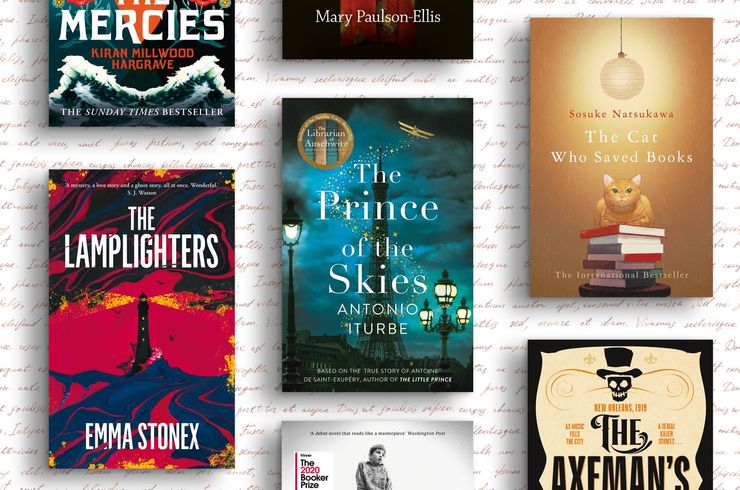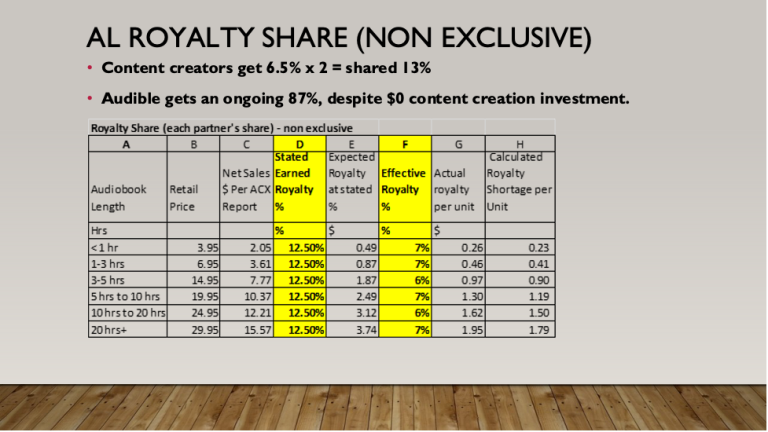What Makes A Bad Narrator?
Ever been captivated by a story, only for the narrator’s voice to ruin the whole experience? We’ve all been there. Whether it’s a book, a movie, or a podcast, a bad narrator can make or break the storytelling. So, what makes a bad narrator? Let’s dive into the world of storytelling and explore the characteristics that can turn a narrator from captivating to cringeworthy.
Imagine settling down with a book, eager to embark on an exciting adventure, only to be greeted by a monotonous and robotic voice. It’s like listening to a machine reading a shopping list. A bad narrator lacks the ability to bring the words to life, failing to infuse the story with the emotions it deserves. The tone, cadence, and delivery should match the mood and atmosphere of the narrative, transporting us to different worlds and evoking genuine emotions. A good narrator, on the other hand, knows how to weave their voice into the fabric of the story, making every word feel alive and engaging. With the right narrator, even the simplest of tales can become a captivating journey.
In addition to lacking emotion, a bad narrator may also struggle with pacing and timing. Just like a stand-up comedian who misses their punchlines, a narrator who doesn’t understand the rhythm of the story can leave us feeling disconnected and unsatisfied. A story should have a natural ebb and flow, allowing us to anticipate and savor each moment. A bad narrator, however, may rush through important scenes or linger too long on insignificant details, throwing off the entire balance. It’s like listening to a song with no rhythm or a dance with no coordination. The right narrator knows how to maintain a steady pace, building suspense when needed and giving us room to breathe during quieter moments.
So, whether you’re reading a book, watching a movie, or listening to a podcast, the narrator plays a crucial role in shaping our experience. A bad narrator can leave us disengaged and uninterested, while a good narrator can transport us to new worlds and make us feel like we’re living the story ourselves. So, the next time you encounter a story with a bad narrator, remember to appreciate the power of a well-told tale and the importance of finding the right voice to bring it to life.
What makes a bad narrator?
A bad narrator can ruin the entire storytelling experience. Some common traits of a bad narrator include monotone or unexpressive voice, poor pacing, lack of character differentiation, and an inability to capture the emotions of the story. Additionally, excessive mispronunciations, stuttering, or inconsistent accents can also detract from the narrative. A good narrator should be able to engage the listener, bring the story to life, and effectively convey the author’s intent.

What Makes a Bad Narrator?
A bad narrator can ruin the experience of a story, whether it’s in a book, movie, or even a podcast. The narrator plays a crucial role in shaping the narrative and guiding the audience through the story. When the narrator fails to effectively engage the audience or deliver the story in a compelling manner, it can lead to a lackluster experience. In this article, we will explore the key factors that contribute to a bad narrator and how they can negatively impact the overall storytelling.
Lack of Emotional Connection
One of the most essential qualities of a good narrator is the ability to establish an emotional connection with the audience. A bad narrator often fails to evoke the necessary emotions that enhance the story and keep the audience engaged. Whether it’s the lack of vocal variation, monotone delivery, or an overall lack of enthusiasm, a narrator who fails to connect emotionally with the audience can make even the most exciting story feel dull and uninteresting.
Additionally, a bad narrator may struggle to convey the emotions and intentions of the characters within the story. They may fail to capture the subtleties of the dialogue, resulting in flat and unconvincing performances. Without the ability to effectively convey emotions, the audience may struggle to connect with the characters and become invested in their journey.
Poor Pronunciation and Diction
Another characteristic of a bad narrator is poor pronunciation and diction. Clear and articulate speech is crucial for effective storytelling. A narrator who consistently mispronounces words, stumbles over sentences, or has a distracting accent can significantly detract from the overall experience. It can be frustrating for the audience to constantly decipher what the narrator is saying, leading to a loss of focus and engagement with the story.
Furthermore, a bad narrator may also lack proper enunciation, making it challenging to follow the narrative. Mumbling or speaking too softly can make it difficult for the audience to understand the dialogue and key plot points. This lack of clarity can be frustrating and may cause the audience to lose interest in the story altogether.
Disengaging Delivery
A bad narrator often has a disengaging delivery style that fails to captivate the audience. They may lack the necessary pacing and rhythm to effectively build tension or create suspense. Whether it’s speaking too quickly, without pauses, or in a monotonous tone, a disengaging delivery can make the story feel flat and unexciting.
Additionally, a bad narrator may fail to vary their tone and inflection to reflect the different characters and moods within the story. This lack of vocal versatility can make it challenging for the audience to distinguish between characters and can result in a lack of depth and dimension in the storytelling.
Lack of Preparation
Preparation is key for any narrator, and a lack thereof can lead to a subpar performance. A bad narrator may stumble over words, lose their place in the script, or struggle to maintain a consistent rhythm and pace. This lack of preparation can be distracting for the audience and can disrupt the flow of the story.
Moreover, a bad narrator may fail to familiarize themselves with the material beforehand, resulting in a lack of understanding and connection with the story. This can lead to misinterpretations and inaccuracies in the narration, further alienating the audience and hindering their enjoyment of the story.
In summary, a bad narrator can have a significant impact on the overall storytelling experience. The lack of emotional connection, poor pronunciation and diction, disengaging delivery, and lack of preparation are some key factors that contribute to a bad narrator. It is essential for narrators to possess the skills to captivate the audience, effectively convey emotions, and maintain a high level of professionalism throughout the narration process. By recognizing and addressing these factors, narrators can strive to deliver exceptional storytelling experiences that captivate and engage their audience.
Key Takeaways: What makes a bad narrator?
- A bad narrator lacks emotion and fails to bring the story to life.
- They may have poor pronunciation or diction, making it hard to understand.
- A bad narrator may rush through the story, not giving the listener time to absorb the information.
- They may use inappropriate tone or voice for the characters, distracting from the narrative.
- A bad narrator may lack consistency in accents or character voices, causing confusion for the listener.
Frequently Asked Questions
Learn more about what makes a bad narrator with these commonly asked questions:
1. Can a bad narrator ruin a story?
Absolutely! A bad narrator can significantly impact the overall quality of a story. A narrator’s role is to bring the story to life, to engage the readers or listeners, and to effectively convey the emotions and nuances of the characters. If a narrator fails to do this, the story may fall flat and fail to captivate the audience.
Furthermore, a bad narrator can create a disconnect between the audience and the story. They may have a monotonous voice, lack enthusiasm, or mispronounce words, making it difficult for the audience to stay engaged. Ultimately, a bad narrator can hinder the immersive experience of a story and leave the audience feeling disconnected and uninterested.
2. What are some common traits of a bad narrator?
There are several traits that can make a narrator ineffective or unappealing. One common trait is a lack of vocal variation. A narrator who speaks in a monotone voice can make even the most exciting story sound dull and uninteresting.
Another trait is poor pacing. A narrator who rushes through the story or speaks too slowly can disrupt the flow and rhythm of the narrative, making it difficult for the audience to stay engaged. Additionally, a bad narrator may struggle with pronunciation, mispronouncing words or using incorrect accents, which can be distracting and detract from the story.
3. How does a bad narrator affect character portrayal?
A bad narrator can negatively impact the portrayal of characters in a story. One way this can happen is through inconsistent character voices. If a narrator fails to differentiate the voices of different characters, it can be confusing for the audience to follow who is speaking, leading to a lack of clarity and immersion.
Furthermore, a bad narrator may not effectively convey the emotions and personalities of the characters. They may fail to capture the essence of the characters, resulting in a shallow and unconvincing portrayal. This can make it difficult for the audience to connect with the characters and become invested in their journeys.
4. How can a bad narrator affect the overall tone of a story?
A narrator plays a crucial role in setting and maintaining the tone of a story. A bad narrator can misinterpret the intended tone, leading to a mismatch between the story’s atmosphere and the audience’s expectations. For example, if a story is meant to be suspenseful and thrilling, but the narrator delivers the lines with a cheerful tone, it can disrupt the desired mood and diminish the impact of the story.
Additionally, a bad narrator may fail to convey the appropriate emotions in key moments, such as intense action scenes or heartbreaking revelations. This can weaken the impact of these crucial moments and hinder the audience’s emotional connection to the story.
5. Can a bad narrator affect the credibility of non-fiction storytelling?
Indeed, a bad narrator can greatly affect the credibility of non-fiction storytelling. When it comes to sharing factual information or real-life accounts, it is vital for the narrator to be trustworthy and knowledgeable. A bad narrator who lacks credibility can cause doubts and skepticism among the audience.
Inaccurate pronunciations, misleading interpretations, or a general lack of expertise can undermine the credibility of the information being presented. It is crucial for a narrator in non-fiction storytelling to thoroughly research and understand the subject matter to ensure an accurate and reliable presentation.
Writing Unreliable Narrators
Final Summary: What Makes a Bad Narrator?
So there you have it, the key factors that contribute to a bad narrator. From a monotonous tone to biased storytelling, these elements can greatly hinder a listener’s engagement and enjoyment of a story. It’s important for narrators to be aware of these pitfalls and strive to avoid them in order to provide a captivating and immersive experience.
Remember, a good narrator brings a story to life, capturing the essence of the characters and their emotions. They use their voice to paint vivid pictures in the minds of the audience, taking them on a journey they won’t soon forget. By avoiding the pitfalls of a bad narrator, storytellers can ensure that they leave a lasting impact on their listeners and create a truly memorable experience.
So the next time you pick up an audiobook or listen to a podcast, pay attention to the narrator’s performance. Are they engaging and dynamic, or do they sound dull and uninterested? A skilled narrator can transport you to different worlds, while a bad narrator can make even the most exciting story fall flat. By understanding what makes a bad narrator, you can appreciate the artistry and skill of those who bring stories to life through their voice.





